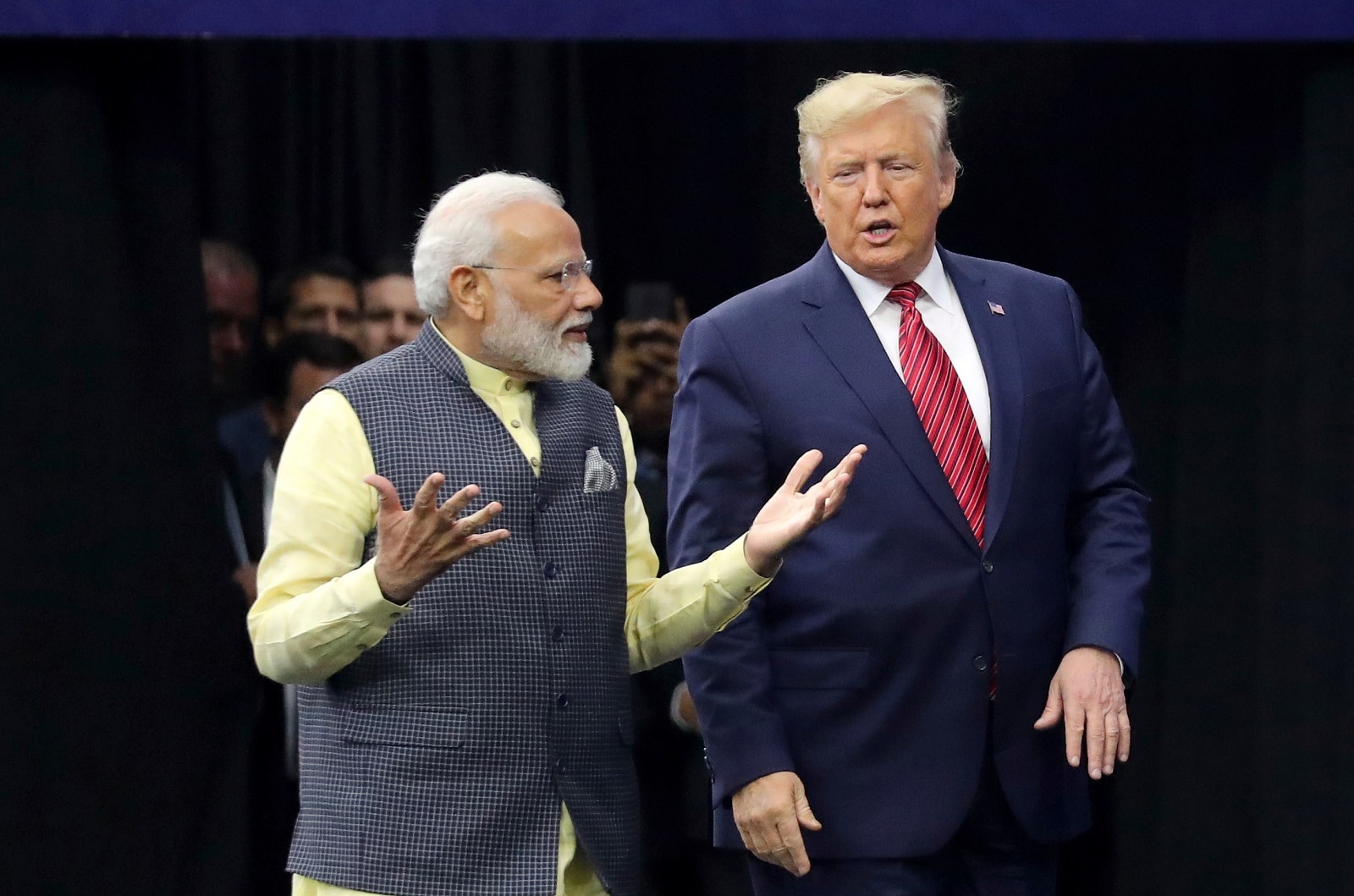[ad_1]

Modi is set to meet President Donald Trump on February 13, with discussions likely focusing on reducing import tariffs, increasing purchases of US energy and defence equipment, and addressing long-standing trade issues.
The visit gains further significance as Trump plans to unveil reciprocal tariffs next week, potentially holding a press conference on Monday or Tuesday, just before Modi arrives in Washington, D.C.
Also Read: Trump may announce tariffs on all partner countries
The visit will also include talks with prominent US business leaders, including Tesla CEO Elon Musk.
Trade and tariff in focus
India and the US are expected to have in-depth discussions about trade and tariffs, particularly regarding the phasing out of import duties.
Indian Foreign Secretary Vikram Misri in a media briefing ahead of PM Modi’s US visit said that New Delhi anticipates “a more intense and continuing discussion on tariffs” during the meeting. Trump has on occasions called out New Delhi as a “tremendous tariff maker.”
Responding to a query about fears around potential tariffs against India during a recent CNBC-TV18 discussion after the budget, India’s Finance and Revenue Secretary Tuhin Kanta Pandey said, “We should not anticipate what has not been stated. India is not protectionist, and this apprehension is not warranted.”
He further said, “We are a very open economy,” noting that US imports into India already face low tariffs. “Out of 8400 tariff lines, 6000 tariff lines are low, below 100%.”
New Delhi has already made significant strides in aligning with Trump’s trade priorities by reducing tariffs on several key US imports, including high-end motorcycles, a move aimed at benefiting American auto majors such as Harley-Davidson.
In the Union Budget 2025-26, Finance Minister Nirmala Sitharaman announced a reduction in customs duties on luxury goods such as high-end motorcycles, cars, and smartphone parts, benefitting US companies like Harley-Davidson, Tesla, and Apple. Importantly, duties on fully imported motorcycles have dropped from 50% to 40%.
The FM also eliminated customs duties on lithium-ion batteries for electric vehicles (EVs), which could encourage US companies like Musk’s Tesla to expand their operations in India. Furthermore, duties on mobile phone battery production equipment have been reduced, providing a boost to local manufacturing and benefiting major players like Apple, which holds a significant market share in India.
New Delhi is also prepared to negotiate a limited trade deal with the US to address market access issues, following unsuccessful attempts during Trump’s first term. Bilateral trade between the two countries surpassed $118 billion in 2023 and 2024, with India posting a trade surplus of $32 billion, per data from Reuters.
India is also reviewing tariffs on over 30 items, including luxury cars and solar cells, as part of efforts to strengthen economic ties with the US.
Immigration and H-1B visa discussions
Immigration is another key issue on the table, with India addressing US concerns about unlawful migrants.
Following US deportation orders, India has repatriated more than 100 citizens, and discussions will focus on managing the return of additional Indian nationals facing deportation.
Modi is expected to advocate for expanding H-1B visas, which are critical for the Indian IT workforce. What may help India’s cause is that Trump has expressed support for the H-1B visa programme, which plays a pivotal role in bringing skilled foreign workers, particularly in the tech sector, to the US. India accounts for the majority of H-1B visa recipients and will be keen to ensure the continuity of this programme.
Defence and energy cooperation
Modi’s visit will also focus on showing India’s intention to increase its purchases of defence equipment from the US, including fighter jets and drones. India is in the process of acquiring 31 drones from the US, valued at approximately $4 billion, and has issued a global tender for 114 fighter jets.
Defence Secretary Rajesh Kumar Singh also said, “we are already meeting a good proportion of our requirements from capable American companies, and we continue to do so. There will be significant buys and some of that will go to the US as well.”
The defence secretary also spoke about the order of aircraft engines given to American aerospace giant GE.“On the anvil there are some other potential areas where we can talk to them in terms of transport aircraft, some infantry vehicles and possibly some additional reconnaissance aircraft. So yes, there are some potential buys, where their companies can be contenders. That is all I would say at this stage,” Singh said, regarding specifically on future projects.
Additionally, the two countries will discuss cooperation on nuclear energy, particularly the development of small modular reactors.
Recent changes to India’s nuclear laws are expected to attract US companies like GE Hitachi Nuclear Energy, Electricite de France SA, and Westinghouse Electric Co. to participate in supplying reactors for large-scale power plants. India is also looking to strengthen its partnership with the US in advanced nuclear technologies, which will be a key focus of discussions during the visit.
ALSO READ | Budget 2025: Top policymakers share key insights on growth, taxation, and defence
[ad_2]
Source link










